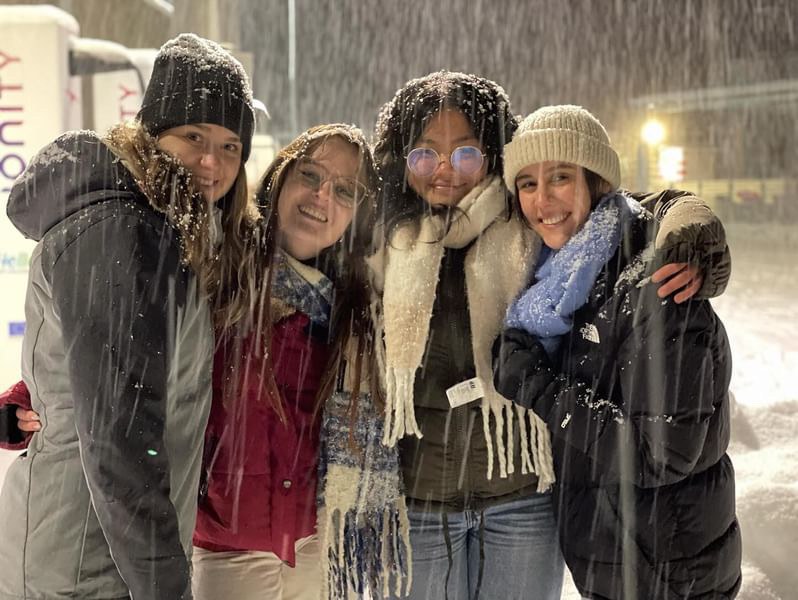"Hoi" - The customary greeting in Liechtenstein. As someone fluent in High German, I initially thought my language skills would give me an advantage in understanding the local dialect. However, upon arriving and attending my first class, my assumptions were quickly proven wrong. When the teacher started speaking in dialect, I was surprised that I had to concentrate intensely. It turned out to be more challenging than I expected, as the language, which I thought would be similar to my own, required a concerted effort to comprehend.
On a personal level, the more I learn about the dialect, the more I appreciate its unique sound. The way people in Liechtenstein speak is truly beautiful, using words and sounds that differ from High German. It's like they have their own captivating way of communication.
At the university, both students and professors use this distinctive way of speaking, making not only the Liechtenstein dialect but also the Austrian dialect the main languages at UniLi. What fascinates me most is the musical quality of the dialect. It's not just about words; it's like creating a melody with every sentence. The rise and fall, the rhythm - it’s akin to having a small concert in every conversation. This way of speaking goes beyond words; it's a unique expression of feelings and ideas.
On a different note, connecting with Swiss people and their dialect has been an adventure. Discovering the differences between the Swiss dialect, High German, and even the Austrian dialect has been like entering a whole new linguistic world.
Planning that I will move to Austria later in life adds a practical dimension to my language exploration. Acquiring expertise in the Austrian dialect not only deepens my cultural understanding but will also be immensely helpful in daily life. It will enable smoother communication with locals, foster a sense of belonging, and make the process of integrating into Austrian society more seamless.
As time passes, my exposure to the dialect continues to facilitate a gradual adaptation in my language comprehension and communication skills. I've become more attuned to its distinctive features, and certain words from the dialect have seamlessly integrated into my everyday speech, naturally becoming part of my linguistic repertoire. This journey of adaptation has not only enhanced my linguistic understanding but has also broadened my cultural appreciation, revealing the diversity within the German language.
Embracing the local dialects becomes more than a linguistic exercise; it becomes a profound exploration of cultural richness and a step towards genuine integration. It's not just about words; it's about embracing a way of life, building connections, and weaving oneself into the fabric of a community that speaks not just with words, but with the heart and soul of a unique language.
